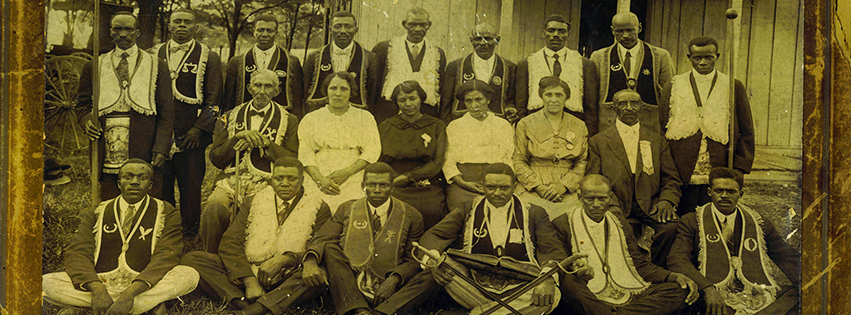
African American Genealogy and Oldham County Court Records
The Ohio River borders the state of Kentucky for 664 miles. When the Northwest Ordinance was chartered in 1787 the Ohio River became the line of demarcation between free soil and slave soil.
Oldham County was established in 1824 primarily from handed-down land grants of American soldiers from the Revolutionary War. Most of these large grants were from more wealthy families from Virginia whose sons served as officers and officials. Commodore Richard Taylor, is such an example. Taylor and his wife, children and close to 100 enslaved laborers settled on one of the high ridges overlooking the Ohio River in Oldham County.
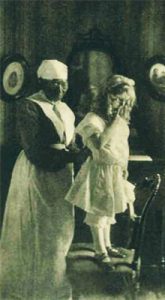 Slavery accounted for 1/3 of Oldham County’s population in 1860. Kentucky was very split on the issue of slavery and there were many who opposed slavery but, there were also many who benefited from the labor and profited from the sales of human enslavement.
Slavery accounted for 1/3 of Oldham County’s population in 1860. Kentucky was very split on the issue of slavery and there were many who opposed slavery but, there were also many who benefited from the labor and profited from the sales of human enslavement.
The resistance of enslaved people was very high. One of the first court cases (1825) in Oldham County is when Lucy, enslaved by Elizabeth Smith, ground glass and put it in Smith’s stew. It took Elizabeth Smith three days to die and Lucy was sentenced to death. But this case is just one example of people who resisted slavery and would rather sacrifice their life then be enslaved.
Oldham County had many people who resisted slavery and there are many throughout the state of Kentucky but often their stories were buried with their attempt of escape or resistance. Slave holders did not want stories of resistance to be popularized and spread throughout the community- there was a grave concern for slave revolt. People like John Brown and Nat Turner; their stories were troublesome and frightening for those who participated in the slave trade. There were also slave insurrections on steamboats where slaves rebelled.
If you were a slave holder, you were profiting from the slave trade. You were a part of the system of buying, trading, and profiting from human trafficking. There was no such thing as a “good” slave owner.
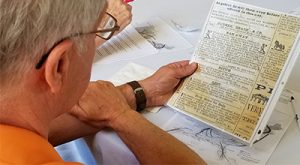 In 1807 the United States passed a federal law, The Act Prohibiting Importation of Slaves from other countries, but it did not restrict slave trading within the borders of the United States. Kentucky became a place where slave trading became a popular business to supply the labor force in the Southern states growing cotton, sugar cane, etc. As a result, the court systems in each county became involved in the capture, holding and auctioning of slaves. Slaves were property and slaves were taxed, just like livestock. Slaves were part of wills and estates and disposition of property. It was the responsibility of court officials such as Justice of Peace, Sheriffs, Jailers and Judges to oversee every aspect of the slave system within their county. Many of these officials received payment for capturing slaves, holding them and in some instance, purchasing slaves before they were auctioned and then working with local slave traders for the slave market.
In 1807 the United States passed a federal law, The Act Prohibiting Importation of Slaves from other countries, but it did not restrict slave trading within the borders of the United States. Kentucky became a place where slave trading became a popular business to supply the labor force in the Southern states growing cotton, sugar cane, etc. As a result, the court systems in each county became involved in the capture, holding and auctioning of slaves. Slaves were property and slaves were taxed, just like livestock. Slaves were part of wills and estates and disposition of property. It was the responsibility of court officials such as Justice of Peace, Sheriffs, Jailers and Judges to oversee every aspect of the slave system within their county. Many of these officials received payment for capturing slaves, holding them and in some instance, purchasing slaves before they were auctioned and then working with local slave traders for the slave market.
Slave trading and slave escape became more numerous between the 1830s up through the Civil War because of cotton. Great Britain was the mercantile capital of the world and the United States supplied 75% of the cotton for Great Britain.
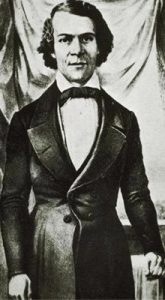 As the demand for slaves grew, the frequency of resistance grew and national leaders rose to organize and protest slavery in the United States. These leaders had been slaves themselves and they told their stories through narratives and newspapers. Henry Bibb was a native of our area and he became a prominent spokesperson for abolition. He spoke with other leaders such as Frederic Douglas, Harriet Tubman, Josiah Henson, Lewis Hayden and many more- over 100 slave narratives were published prior to the Civil War. Free blacks also provided support and money to the abolitionist cause. People like George DeBaptist and John Parker along with the “free black communities” within slave states (of which were numerous). Their leadership and influence garnered support of politicians and activist such as Laura Haviland, Delia Webster, Levi and Catherine Coffin, Salmon Chase, John Rankin and his family, Calvin Fairbank, Richard Oglesby, William Lloyd Garrison and many more.
As the demand for slaves grew, the frequency of resistance grew and national leaders rose to organize and protest slavery in the United States. These leaders had been slaves themselves and they told their stories through narratives and newspapers. Henry Bibb was a native of our area and he became a prominent spokesperson for abolition. He spoke with other leaders such as Frederic Douglas, Harriet Tubman, Josiah Henson, Lewis Hayden and many more- over 100 slave narratives were published prior to the Civil War. Free blacks also provided support and money to the abolitionist cause. People like George DeBaptist and John Parker along with the “free black communities” within slave states (of which were numerous). Their leadership and influence garnered support of politicians and activist such as Laura Haviland, Delia Webster, Levi and Catherine Coffin, Salmon Chase, John Rankin and his family, Calvin Fairbank, Richard Oglesby, William Lloyd Garrison and many more.
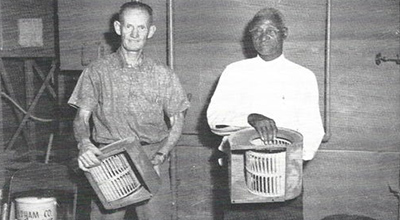 In Oldham County we honor the contribution of our people from our history. Today we have volunteers that are researching our court documents and family papers to “pull-out” the slave records and try to identify where they lived, who were the slave holders, try to locate burial sites, etc. We are pulling their names from records and giving them an identity.
In Oldham County we honor the contribution of our people from our history. Today we have volunteers that are researching our court documents and family papers to “pull-out” the slave records and try to identify where they lived, who were the slave holders, try to locate burial sites, etc. We are pulling their names from records and giving them an identity.
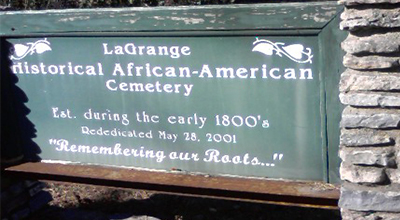 One of the History Center volunteers, Diane Booker, was instrumental in researching African American heritage at the History Center for many years, and her family has roots in Oldham County that date to before the Civil War. Booker worked tirelessly, pulling names of people from wills and court records including estate dispersal and looking at marriage records shortly after the Civil War. In La Grange, Kentucky you will find the LaGrange Historical African American Cemetery.
One of the History Center volunteers, Diane Booker, was instrumental in researching African American heritage at the History Center for many years, and her family has roots in Oldham County that date to before the Civil War. Booker worked tirelessly, pulling names of people from wills and court records including estate dispersal and looking at marriage records shortly after the Civil War. In La Grange, Kentucky you will find the LaGrange Historical African American Cemetery.
The following are entries from current research:
1. Jess Wright (b. 1848 in Trimble County), Contributed by Diane Booker
note: Trimble County was a part of Oldham County prior to 1836. Many of the descendants in our area came from the surrounding region: Trimble, Henry, Shelby and Carroll Counties).
Jess Wright was a custodian for the Bedford Trimble County High School in 1918. Born in 1848 into slavery, he and his family lived on the Dr. Wesley Wright farm on Barbone Road near Bedford. He married Lucy (no maiden name given) in 1900 and they had three children: Emma Lula Wright, Henry Wright and Thomas Wright. Thomas died at an early age. They moved to Oldham County after Lucy’s mother passed away in 1920. Emma Lula married Samuel Johnson. They had four children: Leslie Johnson, Beulah Johnson Whitaker, Lenie Johnson and Lewis Johnson. Lenie and Lewis were twins.
2. Squire Shipman (1843-?)
Squire Shipman was born in Shelby County. On Feb. 22, 1866 he purchased land from H. L. Givens for $380.00. He paid in two payments. A down payment of $180 and final payment $180 on Dec. 25, 1876. The property was located on the corner of South Street and West Street in LaGrange, Ky. The fron side of the property was called Monroe Street today and the South Street is South Second Street today. The property today runs between Washington Street and Adams Street and the lots are 6, 12, 18, and 24.
Shipman and his family moved to Oldham County . The 1870 census states Squire lived in LaGrange. He was 21 years of age in dwelling no. 99 listed as a farm laborer. His spouse was Mary Shipman, age 20 and born in 1850. She was listed as a house keeper.
1880 Census: Squire Shipman age 34 was single and lived in LaGrange. Squire had two sisters, Bettie Shipman (b. 1885) and Katie Shipman (b. 1892) and a brother named Frank Shipman (b. 1852).
1900 Census: Squire Shipman lived with his wife Mandy Shipman on Worth Street in LaGrange, dwelling no. 108. Mandy Shipman was born in Aprilo 1858, age 42.
1910 Census: Squire Shipman still lived in LaGrange. He was 67, Mandy was 52. The three siblings of Ships lived at his home. Katie had a son named Ray Fred Jacobs who was born 1906.
3. Alexander Beaumont
Alexander Beaumont was born into slavery in 1839 in Garrard County. He was enslaved by Susan Beaumont who signed for him to enlist in the Union Army on June 16, 1864 at Camp Nelson in Company E, 116 Infantry. He was listed at 5’8″ and age 25 when he enlisted. His rank was private and he became a cook. He mustered out on January 17, 1867 at New Orleans. He was due $15.15 for his last pay. He went to Oldham County and married Lucy Fible. They had six sons and one daughter. 1880 Census Records for Alex Beaumont state: George, age 10; Jerry O., age 9; Kate B., age 8; John H., age 6; Claude A., age 4; Charles L. age 2 and James O., age 1.
The Beaumont Family lived on the Fible farm in Ballardsville in Oldham County. Lucy’s family also lived on the farm. The 1900 census indicated Lucy passed away. Alexander moved to LaGrange to live with his son, John H. Beaumont. They lived on Monroe Street which was renamed Second Avenue.
Alexander Beaumont is buried in the Northwestern Colored Cemetery which is today has been renamed as the Historic African American Cemetery in LaGrange.
Here is a link to African American Births in Oldham County in 1857
